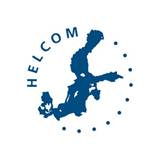Зарубежные новости
PRESS RELEASE HELCOM (January)

All HELCOM Contracting Parties aim for common indicators for the marine environment
New round kicks off to jointly assess the entire Baltic
15 January 2014, Berlin, Germany – An expert workshop today kicks off the second round of HELCOM work on core indicators, which measure the state of and pressures affecting the Baltic Sea environment. The workshop is organized by the recently started HELCOM CORESET II project (2013–2015) that has the objective of operationalizing the first mutually agreed core indicators for biodiversity, hazardous substances and eutrophication, and to possibly develop additional ones.
HELCOM, involving all Baltic coastal countries and EU as its Contracting Parties as well as an extensive specialist expert and observer network, has long experience in indicator development. HELCOM core indicators are common for all Contracting Parties and can be used to assess the state of the whole Baltic Sea ecosystem, including its flora, fauna and habitats, as well as pressures affecting the Sea such as hazardous substances like PCB and radioactive substances.
Core indicators analyze data from environmental monitoring and measure the environment’s state against a target or boundary value for good environmental status (GES). They are also a prerequisite for comparing monitoring data and assessment results across the entire Baltic Sea region. Such indicators enable assessments of whether the objectives of HELCOM Baltic Sea Action Plan are being met, and, for the countries being EU members, also the requirements of the EU Marine Strategy Framework Directive.
PRESS RELEASE HELCOM (November)

Sketching maritime spatial planning and fisheries management in the region
Fishing for space in the Baltic
14 November 2013, Vilnius, Lithuania – As a pioneering region in spatial planning, experts, industries and managers from around the Baltic Sea join for two days of workshops on fisheries sector, aquaculture and harmonized planning of the marine area. The growing use of marine space requires clever planning and management across several national borders and sectors.
HELCOM, holding the joint horizontal leadership in maritime spatial planning with Vision and Strategies around the Baltic Sea (VASAB) in EU Strategy for the Baltic Sea (EUSBSR), organizes today’s workshop. It is co-financed by the EU through technical assistance under EUSBSR. The intention is to discuss the many aspects of cross-border planning; to further assess the benefits and challenges of integrating fisheries in maritime spatial planning (MSP); as well as MSP data needs. The outcome and recommendations of the first day, with a main focus on the Baltic Sea, will be passed on tomorrow Friday to the European Commission’s stakeholder workshop on all EU seas.


